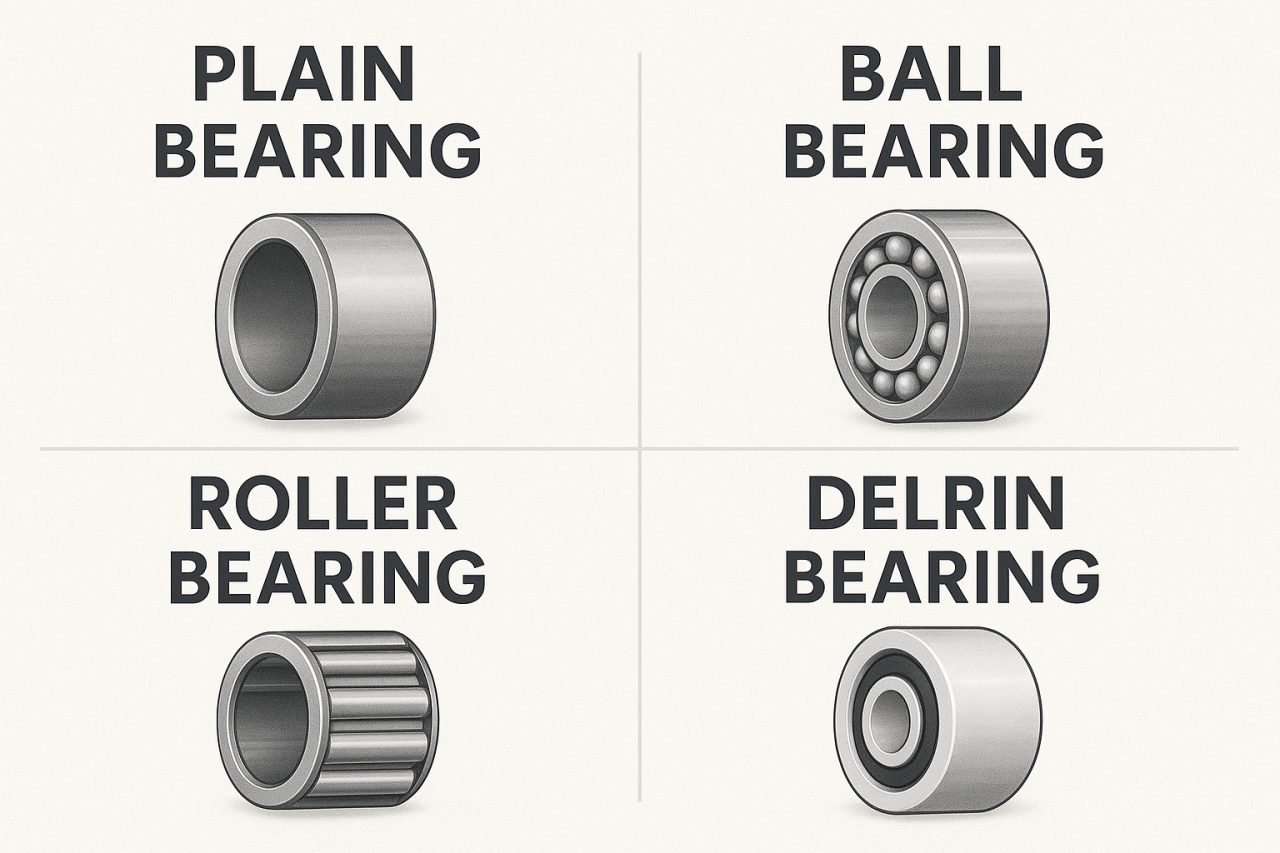Types of Caster Wheel Bearings and How to Choose the Right One
Introduction
Caster Wheel bearings are critical components that ensure smooth rotation, reduce friction, and support the load of wheels in vehicles, carts, and industrial machinery. Choosing the right wheel bearing type is essential for performance, durability, and safety. Here are some common types of bearings used in caster wheels:
Main Types of Wheel Bearings
Ball Bearings
Ball bearings are one of the most widely used wheel bearings thanks to their versatility, efficiency, and low friction design. They use spherical balls as rolling elements, which reduce surface contact and allow for smooth, high-speed rotation.
Roller Bearings
These bearings use cylindrical rollers instead of balls, providing higher load capacity and durability. Suitable for heavy-duty applications.
Plain Bearings
Plain bearings, also known as sleeve bearings or bushings, are the simplest type of bearing. Instead of rolling elements, they use a smooth sliding surface to reduce friction between moving parts. Higher friction compared to ball or roller bearings, but most cost-effective.
👉 Plain bearings are ideal when load capacity and durability matter more than speed.
Delrin Bearings
Delrin bearings are made from Delrin® (acetal resin / POM – Polyoxymethylene), a high-performance engineering plastic. They are lightweight, corrosion-resistant, and self-lubricating, making them a modern alternative to metal bearings.
| Bearing Type | Load Capacity | Speed Capability | Maintenance | Price Range | Best Applications |
|---|---|---|---|---|---|
| Ball Bearing | Medium (light to moderate loads) | High (excellent for high-speed use) | Requires lubrication | $$ (moderate) | Cars, bicycles, electric motors, industrial carts |
| Roller Bearing | High (handles heavy loads) | Medium (slower than ball bearings) | Regular lubrication needed | $$$ (higher cost) | Heavy machinery, trucks, conveyor systems |
| Plain Bearing | Very High (excellent for static and shock loads) | Low (not for high-speed use) | Lubrication required (unless self-lubricating) | $ (low cost) | Construction equipment, agricultural machinery, suspension systems |
| Delrin Bearing | Low to Medium (lighter loads) | Medium (quiet and efficient) | Self-lubricating, minimal maintenance | $$ (moderate) | Food processing, medical devices, lightweight carts |
How to Choose the Right Wheel Bearing
Load Capacity
Select a bearing that can handle the expected weight and load conditions. Heavy-duty equipment needs roller or plain bearings.
Operating Speed
For high-speed applications, ball bearings are preferred due to their low friction performance.
Environment & Conditions
-
Dusty or wet environments → sealed bearings (ball bearings with cap).
-
Clean, controlled environments → unsealed bearings for longer life with proper maintenance.
Conclusion
Choosing the right wheel bearing depends on load, speed, environment, and maintenance needs. By understanding the different types, you can ensure reliable performance and longer service life.
👉 Looking for high-quality wheel bearings? Contact us today to find the perfect solution for your application!
-
✉️ Email: [email protected]
-
📞 TEL: +886-2-2999-1469
-
📠 FAX: +886-2-2999-8377




